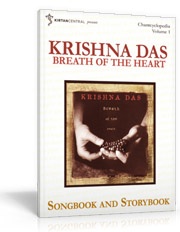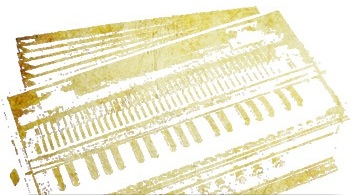



 |

Kirtan+ConfettiMusic and Mantra playlists |
 |

Learn harmonium!Online music classes |
 |

Krishna Das
|








 |

Kirtan+ConfettiMusic and Mantra playlists |
 |

Learn harmonium!Online music classes |
 |

Krishna Das
|
 posted by Daniel on December 19th, 2011
posted by Daniel on December 19th, 2011Here's a news brief you won't catch on CNN or Fox News: Global Harmonium Shortage hits the Kirtan Community Hard!
It's all too real, and not a temporary emptying of shelves caused by Black Friday either. You won't hear about it on the evening news, because kirtan music, and the instruments used in playing kirtan music, is a rather small niche, and a bit off the radar of the mainstream media. But for us in the chant community, it's a real problem that's been coming for a while now.
 The story begins in Paris, where the Harmonium was invented in the nineteenth century. It became popular throughout Europe, and in America as well, and many different manufacturers created competing designs, patenting and crafting new ways to lay out the harmonium's bellows, reeds, stops, and other parts. This was a highly innovative time for keyboard instruments - in fact, the piano itself had just been invented a hundred years earlier. In the perspective of the evolution of Western Music, Harmoniums were just one of a flurry of instruments based on the piano's keyboard that had their fifteen minutes of fame. This includes the pianoforte, harmonichord, new types of clavichord and harpsichord, harmonium, accordion, and eventually electric organ, and synthesizer keyboards.
The story begins in Paris, where the Harmonium was invented in the nineteenth century. It became popular throughout Europe, and in America as well, and many different manufacturers created competing designs, patenting and crafting new ways to lay out the harmonium's bellows, reeds, stops, and other parts. This was a highly innovative time for keyboard instruments - in fact, the piano itself had just been invented a hundred years earlier. In the perspective of the evolution of Western Music, Harmoniums were just one of a flurry of instruments based on the piano's keyboard that had their fifteen minutes of fame. This includes the pianoforte, harmonichord, new types of clavichord and harpsichord, harmonium, accordion, and eventually electric organ, and synthesizer keyboards.
And so the harmonium had it's moment in Europe and America's fancy, and later petered out. All Western harmonium makers (and harmonium reed makers) stopped manufacutring the instrument by 1950, presumably shifting into producing other instruments.
And yet here were are, playing our harmoniums and singing kirtan, so, what happened? Well, in a "saved by the bell" moment, a stroke of luck had some Christian missionaries from Britain take a kindness to the harmonium as a portable church organ, as they sailed to India on ships that could not fit full pipe organs. When they arrived in India, the harmonium was a major hit! Christianity took hold in some spots, but the harmonium travelled like wildfire, as musicians from all of India's religions (including Hindu, Sikh, and Muslim) incorporated the harmonium into their spiritual musics. And so just as the harmonium was fading into the dusk in the Western world, it was being raised to the heavens in India, with many dozens of manufacturing shops tooling up to produce harmoniums - with the legs removed, of course, so that they could be stationed on the ground and played while sitting on the floor.
Then in the late 20th century, in a kind of ironic global ping-pong, Eastern Religions began to take hold in the West, and by today, many of us have taken up kirtan - singing God's names within sanskrit mantrans - as a heartfelt daily practice... which... relies on the harmonium! Try as we may to import our spirit from somewhere else, it's always right at home beneath our own hearth; and try as we may to enjoy the exotic Indian sound of the harmonium, it is really a European instrument in origin!
Which brings me to today's conundrum: As kirtan is growing like wildfire in America and Europe and elsewhere in the Western world, the only manufacturers of harmoniums are currently in India, and this is a problem! India is known for it's spirituality, it's artwork, it's culture and cuisine, it's dance and music... but not for it's manufacturing. Can you name an Indian model of car? And so, as the demand for harmoniums is globally increasing, the small Indian shops that produce harmoniums of mediocre quality by hand in cramped settings, and who struggle to get their shipments handled decently enough so that American importers don't just receive crates full of splinters and screws, are having a hard time keeping up with that demand. Shipments destined for western importers are arriving months late, to stores that have largely pre-sold the incoming instruments. Quality overall is declining as the small shops try to produce more instruments rapidly, but without the infrastructure to scale up properly.
And so, each day I receive emails from people wondering, "Where can I get a harmonium? I've heard a Bina 23b or a DMS 24a is the best thing to get, but I can't find any shops that have them in stock. What do I do?" I tell them they should ask the shops if they can pre order one, and be patient while they wait some months for it to arrive. And in the meantime, share some tips about harmoniums at my Kirtan Central page - www.kirtancentral.com/harmonium. But I'm starting to play with the notion that we should begin making them again here in the states.
| [see permalink] |